Hypertonia or Stiff Limbs in Toddlers – Causes, Symptoms & Treatments

Hypertonia can result in chronically contracted limbs that become stiff and difficult to move. It is a common condition affecting children. A certain form of hypertonia in newborn could even display cerebral palsy in children. Arm yourself with information on this problem and learn ways to tackle it.
If your toddler’s limbs appear too stiff or rigid, be swift in reaching out to a doctor. Although there are a variety of reasons this trouble could be pinned to, you don’t want to ignore something like neonatal hypertonia. To gain a better understanding of this malicious condition called hypertonia, think of the brain as sending signals to the nerves telling them to regulate the movement of muscle tone. But, when certain regions of the brain that control these signals get damaged, hypertonia is developed in children.
What Is Hypertonia in Babies?
It is a condition in which there is an abnormal hike in muscle tension, marked by a decrease in the ability of a muscle to stretch. This occurs in the lesion of the upper motor neuron. Babies with hypertonia have rigid muscles. They experience difficulty in flexing and have muscle tension while resting. It results from an injury to the central nervous system sustained to a baby in the womb and usually develops by the age of 2 or 3.
Is Hypertonia Common in Babies?
Hypertonia, or increased muscle tone, is less common in babies compared to hypotonia (decreased muscle tone). However, it can occur in some infants. Causes may include neurological issues or conditions such as cerebral palsy. If there are concerns about a baby’s muscle tone, it’s important to consult with a healthcare professional for a proper assessment and guidance.
What Are the Types of Hypertonia in Newborn Babies?
Hypertonia in newborn babies refers to increased muscle tone, which can affect their movement and posture. There are various types of hypertonia, and identifying the specific type is crucial for appropriate management. Two common types include:
1. Spastic Hypertonia
Spastic hypertonia is characterized by stiff and rigid muscles, making movements appear jerky. This type often results from damage to the motor cortex of the brain, leading to difficulties with muscle coordination and control.
2. Dystonic Hypertonia
Dystonic hypertonia involves sustained muscle contractions, causing repetitive or twisting movements. It may result from abnormalities in the basal ganglia, a part of the brain involved in motor control. Infants with dystonic hypertonia may exhibit unusual postures or involuntary muscle spasms.
Causes of Hypertonia
An injury to the brain may result in hypertonia in babies. This injury may affect that part of the brain which controls the movements of the body, posture, and reflexes. The possible causes of this injury could be the following:
1. Infections
Infection during pregnancy, such as meningitis, can have a damaging effect on the developing nervous system of a foetus and, hence, cause hypertonia.
2. Jaundice
Severe jaundice which remains untreated can cause damage to the brain cells of an infant which may result in hypertonia.
3. Oxygen Deprivation
Severe deprivation of oxygen to the brain or significant trauma to the head during labour and delivery may result in hypertonia. When the brain does not receive enough oxygen and other necessary nutrients during labour, it causes cerebral palsy.
4. Premature Birth
Babies who are born prematurely are prone to cerebral palsy and may develop hypertonia.
5. Ingestion of Heavy Metals
When the mother-to-be indulges in drugs and alcohol during pregnancy, it is not good for the baby. Ingestion of heavy metals such as lead, mercury, and copper may prove toxic to the foetus.
6. Genetic Factors
In some cases, hypertonia may have a genetic component. Certain genetic disorders affecting the nervous system or muscle function can lead to increased muscle tone in infants.
7. Traumatic Brain Injury
Trauma to the baby’s head during childbirth or in the early postnatal period can result in hypertonia. This injury may disrupt the normal development and functioning of the brain, leading to increased muscle tone.
8. Metabolic Disorders
Certain metabolic disorders, where the body is unable to properly break down or process nutrients, can impact the nervous system and contribute to hypertonicity in newborns. These disorders may interfere with the normal development of the brain and muscles.
Children who are mildly affected by cerebral palsy may suffer from slightly stiff muscles. If the hypertonia in a child is severe, it could cause immobility, confining them to a brace, a walker or a wheelchair.
Symptoms of Hypertonia in Babies
Symptoms of hypertonia can be seen soon after a child is born. Most notable symptoms include the delay of certain developmental stages in children such as the act of rolling, sitting, crawling or walking. Other hypertonia in babies symptoms include:
- Stiff and rigid muscles which are impossible to stretch
- Difficulty in moving from one position to another
- Involuntary crossing of legs; legs become crossed like scissors when lifted or picked up
- Sudden tremors or jerks which worsen during periods of stress
- Lack of coordination
- Delay in motor skills development
- Difficulty in walking
- Problem in swallowing
- Deformity and loss of function
How Is Hypertonia Different from Cerebral Palsy?
Cerebral palsy, a neurological disorder, results from a brain injury that happens before or during a baby’s birth. This brain injury, in turn, affects muscle movements and motor skills of a child. Hypertonia, on the other hand, is a condition that causes rigid muscles or muscle tension because of the injury to the central nervous system. Hence, hypertonia can be considered as one of the symptoms of cerebral palsy. But, this may not always be the case.
Diagnosis of Hypertonia in Babies
Diagnosing hypertonia in babies involves a comprehensive assessment by healthcare professionals to identify the underlying causes and determine appropriate interventions. Here are key points related to the diagnosis of hypertonia in infants:
- Healthcare providers will gather information about the baby’s medical history and conduct a thorough physical examination to assess muscle tone, reflexes, and overall motor function.
- A neurological examination is performed to evaluate the baby’s nervous system, including reflexes, coordination, and responses to stimuli.
- Comparing the baby’s developmental milestones with typical age-appropriate achievements helps identify any delays or abnormalities in motor skills.
- Neuroimaging techniques such as MRI or CT scans may be employed to visualize the brain and identify any structural abnormalities or injuries.
- In cases where a genetic component is suspected, genetic testing may be recommended to identify specific disorders that could contribute to hypertonia.
- Blood tests may be conducted to check for metabolic disorders or other underlying medical conditions that could be associated with hypertonia.
Risk Factors for Hypertonia in Infants
Hypertonia in infants can be influenced by various risk factors that contribute to increased muscle tone. Understanding these factors is crucial for both prevention and early intervention. Here are key points related to the risk factors for hypertonia in infants:
- Premature Birth: Babies born prematurely are at an increased risk of hypertonia, as their nervous systems may not have fully developed, leading to difficulties in muscle coordination.
- Birth Trauma: Traumatic experiences during the birthing process, such as oxygen deprivation or head injuries, can contribute to hypertonia in newborns.
- Genetic Predisposition: A family history of neurological or muscular disorders can heighten the risk of hypertonia, indicating a potential genetic component.
- Maternal Health During Pregnancy: Certain maternal health conditions, including infections, exposure to toxins, or untreated medical issues, can affect the developing nervous system of the fetus and increase the risk of hypertonia.
- Metabolic Disorders: Infants born with metabolic disorders that impact the processing of nutrients may be more susceptible to hypertonia.
Hypertonicity Treatment
Physical therapy is the most recommended treatment by doctors for treating hypertonia in children. Medications such as baclofen and diazepam are relaxing drugs prescribed to reduce spasticity. But physiotherapy can prove effective in hypertonia in infants treatment. You can try:
1. Stretching
A child may not be able to move his limbs freely because of muscle contraction. Stretching can relax and extend those muscles and thus a child will be able to move his muscles without difficulty.
2. Managing Posture
The rigid muscles of babies are likely to affect their posture. Hence, postural management treatment is used to help a child relax and make his body less tense so that he could acquire a normal posture.
3. Joint Compressions
Joint compressions work in treating hypertonicity in infants. It can be done 3-4 times a day. Physical input on his muscles and joints will calm the child, relax his muscles, and improve his posture.
4. Practise Normal Movements
Due to muscle tension, a child’s movements are affected. Thus, along with physiotherapy, you should indulge your child in everyday activities which facilitate normal regular movements, like taking him for a walk.
5. Other Treatments
Massages are very effective in treating hypertonicity in babies. Apart from that gymnastics, soothing baths, and aromatherapy is also recommended for curing hypertonia.
Outlook of Hypertonia in Babies
The prognosis for hypertonia in babies is contingent on both the intensity of the condition and its root cause. In instances where hypertonia is associated with cerebral palsy, it often persists without significant alteration throughout an individual’s lifetime. Furthermore, there are scenarios where hypertonia may exacerbate alongside the deterioration of the underlying condition.
While mild hypertonia may have negligible effects as the child ages, moderate hypertonia could elevate the likelihood of abnormal joint contractions, thereby increasing the risk of falls. On the other hand, severe hypertonia carries a heightened risk of various complications, including fractures, bedsores, infections, and pronounced immobility.
When to Call the Doctor?
Recognizing when to seek medical advice for hypertonia in babies is crucial for early intervention. Here are key indicators that warrant a call to the doctor:
- Delayed Developmental Milestones: If the baby is not reaching expected developmental milestones related to motor skills, such as rolling over, sitting up, or crawling, it’s advisable to consult a doctor.
- Unusual Muscle Stiffness or Rigidity: If there are noticeable signs of abnormal muscle stiffness or rigidity in the baby’s limbs, neck, or trunk, a healthcare professional should be contacted.
- Concerns About Muscle Tone: If parents or caregivers observe persistent concerns regarding the baby’s muscle tone, such as increased stiffness or floppiness, a doctor’s assessment is warranted.
- Difficulty With Movement: If the baby exhibits difficulties with movement, coordination, or experiences unusual postures that raise concerns, seeking medical advice is essential.
- Regression in Skills: If the baby shows regression in previously acquired motor skills or experiences a loss of abilities, it is crucial to bring these changes to the attention of a healthcare provider.
- Persistent or Worsening Symptoms: If symptoms of hypertonia persist or worsen over time, it is important to seek medical attention for a thorough evaluation and appropriate intervention.
FAQs
1. Is Hypertonia in Infants Hereditary?
Hypertonia in infants can have a hereditary component. Genetic factors may contribute to certain neurological or muscular conditions that result in hypertonia.
2. Do Infants Outgrow Hypertonia?
The outlook varies, but some infants may outgrow mild hypertonia with time and appropriate interventions. However, it depends on the underlying cause and severity of the condition.
3. Does Hypertonia Go Away When Baby Is Sleeping?
Hypertonia typically does not resolve during sleep. The symptoms persist regardless of the baby’s sleep state. If there are concerns about muscle tone, it’s advisable to consult with a healthcare professional.
4. Is Walking Possible for the Infants Affected By Hypertonia?
The ability to walk may be affected by hypertonia, depending on its severity and underlying causes. In some cases, with early intervention and therapy, infants may achieve developmental milestones like walking, while others may face challenges in motor skills. Consultation with healthcare providers is crucial for proper assessment and guidance.
Hypertonia can be treated if it is taken care of at the right time. If hypertonia is left undetected, there are chances that cerebral palsy may go left unnoticed. While doing everything you can during pregnancy, it doesn’t mean you can avoid the problem. But, eating, staying healthy and regular trips to the doctor certainly lower the risk of hypertonia and other related problems.
References/Resources:
1. Hart. A, Sharma. R, Rittey. C, Mordekar. S; Neonatal hypertonia – a diagnostic challenge (Developmental Medicine & Child Neurology); Wiley Online Library; https://onlinelibrary.wiley.com/doi/full/10.1111/dmcn.12658; December 2014
2. Hypertonia; Physio.co.uk; https://www.physio.co.uk/what-we-treat/paediatric/problems/neurological-problems/abnormal-muscle-tone/hypertonia.php
3. Hypertonia; Child Neurology Foundation; https://www.childneurologyfoundation.org/disorder/hypotonia/
4. Hypertonia in Babies; Cleveland Clinic; https://my.clevelandclinic.org/health/diseases/22231-hypertonia-baby
5. Hypotonia; National Institute of Neurological Disorders and Stroke; https://www.ninds.nih.gov/health-information/disorders/hypotonia
6. Muscle Weakness (Hypotonia); Boston Children’s Hospital; https://www.childrenshospital.org/conditions/muscle-weakness-hypotonia
7. Sanger. T; Hypertonia in children: how and when to treat (Current Treatment Options in Neurology); National Library of Medicine; https://pubmed.ncbi.nlm.nih.gov/16221366/; November 2005
Also Read:
Spina Bifida
Clicky Hips in Babies
Bowed Legs in Babies & Toddlers
Was This Article Helpful?
Parenting is a huge responsibility, for you as a caregiver, but also for us as a parenting content platform. We understand that and take our responsibility of creating credible content seriously. FirstCry Parenting articles are written and published only after extensive research using factually sound references to deliver quality content that is accurate, validated by experts, and completely reliable. To understand how we go about creating content that is credible, read our editorial policy here.






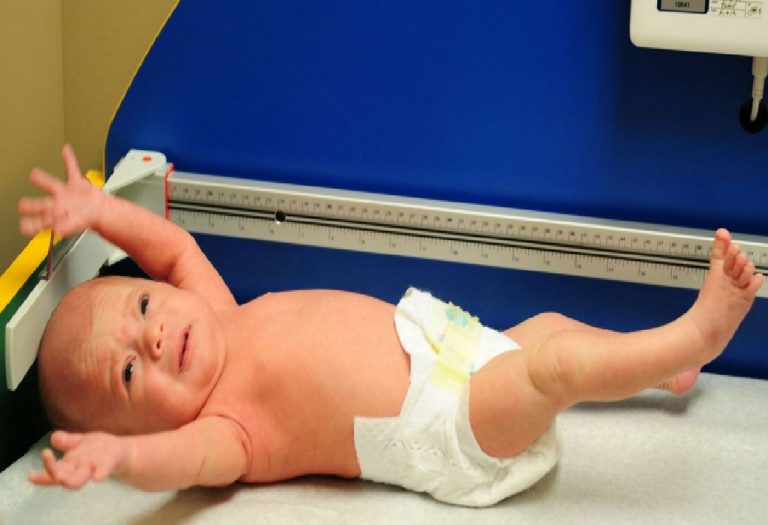

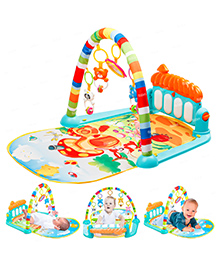
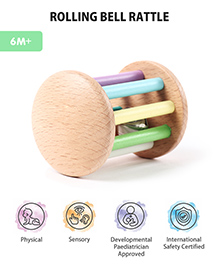
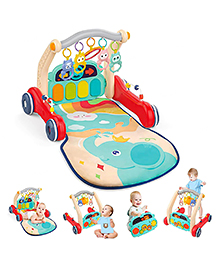




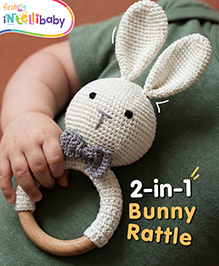

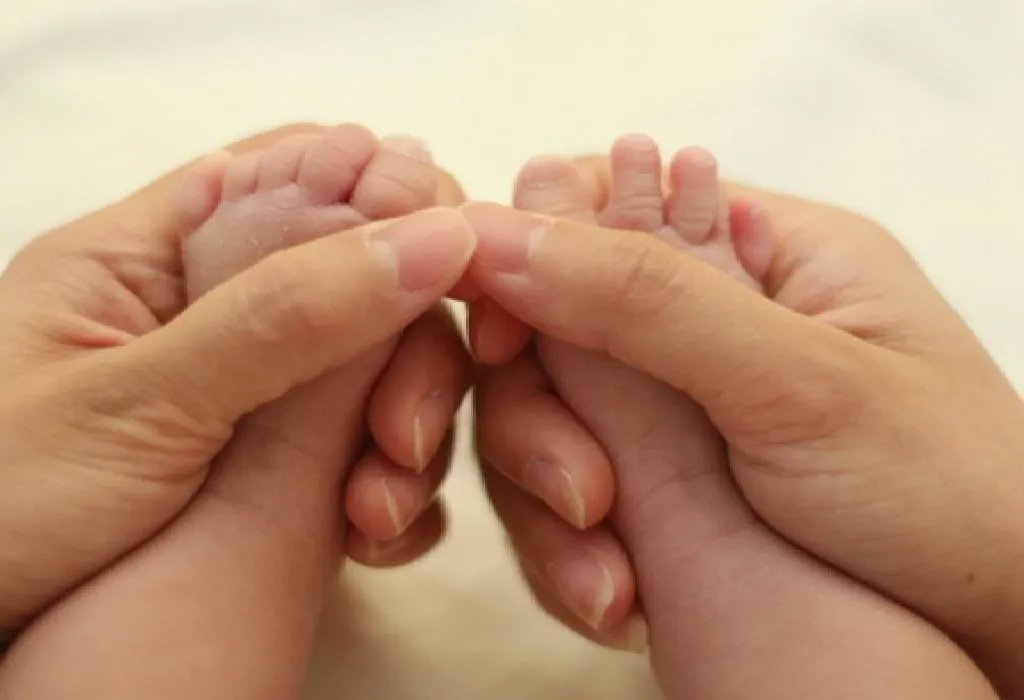







.svg)


















